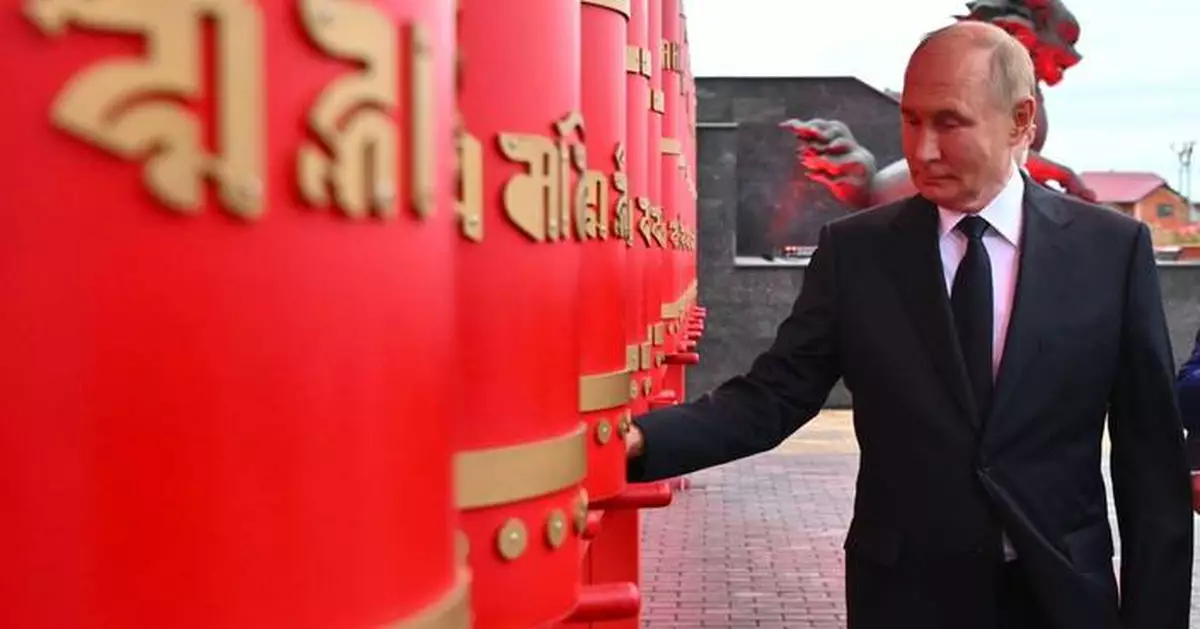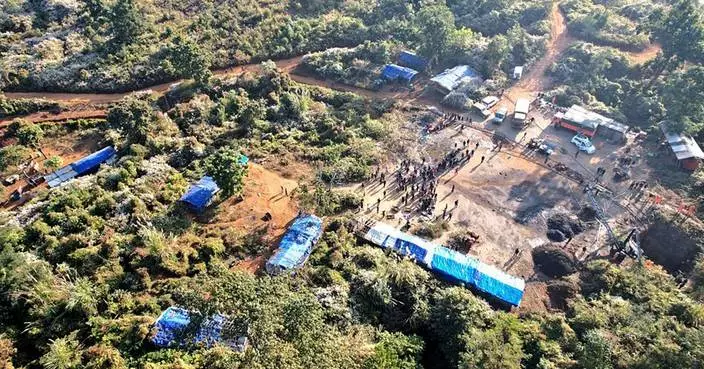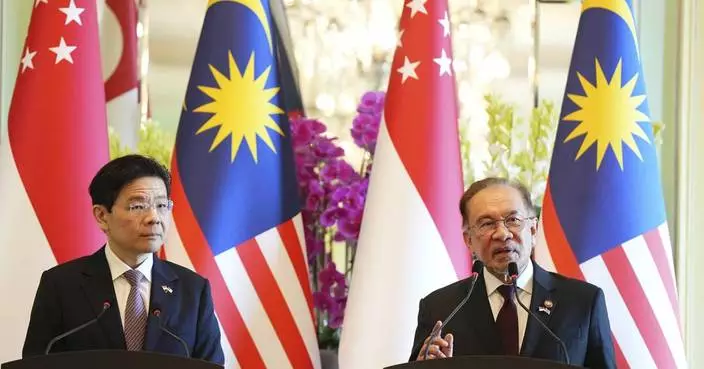Russian President Vladimir Putin arrived Monday in Mongolia, a member of the international court that issued an arrest warrant for him.
The official visit, in which he is to meet Tuesday with Mongolian leader Ukhnaa Khurelsukh, is Putin’s first to a member country of the International Criminal Court since it issued a warrant for his arrest nearly 18 months ago on charges of war crimes in Ukraine.
Ukraine has called on Mongolia to arrest Putin and hand him over to the court in The Hague. A spokesperson for Putin said last week that the Kremlin isn’t worried about the visit.
Members of the international court are bound to detain suspects if an arrest warrant has been issued, but the court doesn’t have any enforcement mechanism.
Mongolia, a sparsely populated country between Russia and China, is heavily dependent on the former for fuel and electricity and on the latter for investment in its mining industry.
The ICC has accused Putin of being responsible for the abductions of children from Ukraine, where the fighting has raged for 2½ years.
Putin and the Mongolian leader on Tuesday are to attend a ceremony marking the 1939 victory of Soviet and Mongolian troops over the Japanese army that had taken control of Manchuria in northeastern China. Thousands of soldiers died in months of fighting in a dispute over where the border was between Manchuria and Mongolia.
Though Putin has faced international isolation over the invasion of Ukraine, he visited North Korea and Vietnam in June and has also visited China twice in the past year.
He joined a meeting in Johannesburg by video link last year after the South African government lobbied against him showing up for the BRICS summit, a group that also includes China and other emerging economies. South Africa is an ICC member.

Russian President Vladimir Putin visits Tubten Shedrub Ling datsan in Kyzyl, Republic of Tyva, Russia, Monday, Sept. 2, 2024. (Kristina Kormilitsyna, Sputnik, Kremlin Pool Photo via AP)
LAS VEGAS--(BUSINESS WIRE)--Jan 7, 2025--
Tineco, a leader in smart floor care solutions, is attending CES for the fourth consecutive year, showcasing innovations that redefine the boundaries of smart cleaning technologies. After introducing the first smart vacuum cleaner in 2018, followed by the first smart floor washer in 2019 and the first carpet cleaner in 2022, Tineco's presence at the show confirms its commitment to revolutionizing the cleaning experience through cutting-edge design and advanced features.
This press release features multimedia. View the full release here: https://www.businesswire.com/news/home/20250107940601/en/
The main novelty presented at CES is the FLOOR ONE S9 Artist Steam, which comes after the company was recognized as a global leader in the floor mop segment*. This new flagship represents Tineco’s most advanced device yet, combining intelligent capabilities, intuitive design, and powerful steam cleaning to modernize convenience and efficiency in floor care. Key features include:
“At Tineco, our passion for innovation inspires us to develop home cleaning solutions that exceed expectations and meet the evolving needs of modern families,” said Mr. Leng, CEO of Tineco. “We are deeply committed to understanding consumer needs and providing solutions that address real-world challenges, and the FLOOR ONE S9 Artist Steam is a perfect example of this dedication, providing a deep clean and taking traditional home cleaning to the next level. We are excited to introduce this new device at CES and invite attendees to visit our booth to try it for themselves and learn about our additional floor care solutions.”
Tineco’s 2024 flagship models will also be on display at CES 2025, featuring groundbreaking innovations designed to redefine home cleaning. These include:
Tineco can be found at Booth No. 51239 in the Smart Home section of the Venetian Expo for live demonstrations of Tineco’s floor care and kitchen solutions. For more information on Tineco, please visit it.tineco.com.
*Source: Euromonitor International (Shanghai) Co., Ltd.; measured in terms of 2023 H2 and 2024 H1 retail sales volume in the world; household wet & dry vacuum cleaners are defined as household cleaners that dispense clean water (or cleaning solution) to wash hard floors and vacuum the dirty water and garbage thereafter; research completed in Nov. 2024.
About Tineco
Tineco was founded in 1998 with its first SKU as a vacuum cleaner and, in 2019, pioneered the first-ever smart vacuum. Today, the brand has innovated into a global leader offering intelligent appliances across home categories, including floor care, kitchen, and personal care. Tineco is dedicated to its brand vision of making life easier through smart technologies and consistently innovating new devices.


Tineco Set to Revolutionize Home Cleaning with New Innovation at CES 2025 (Photo: Business Wire)











